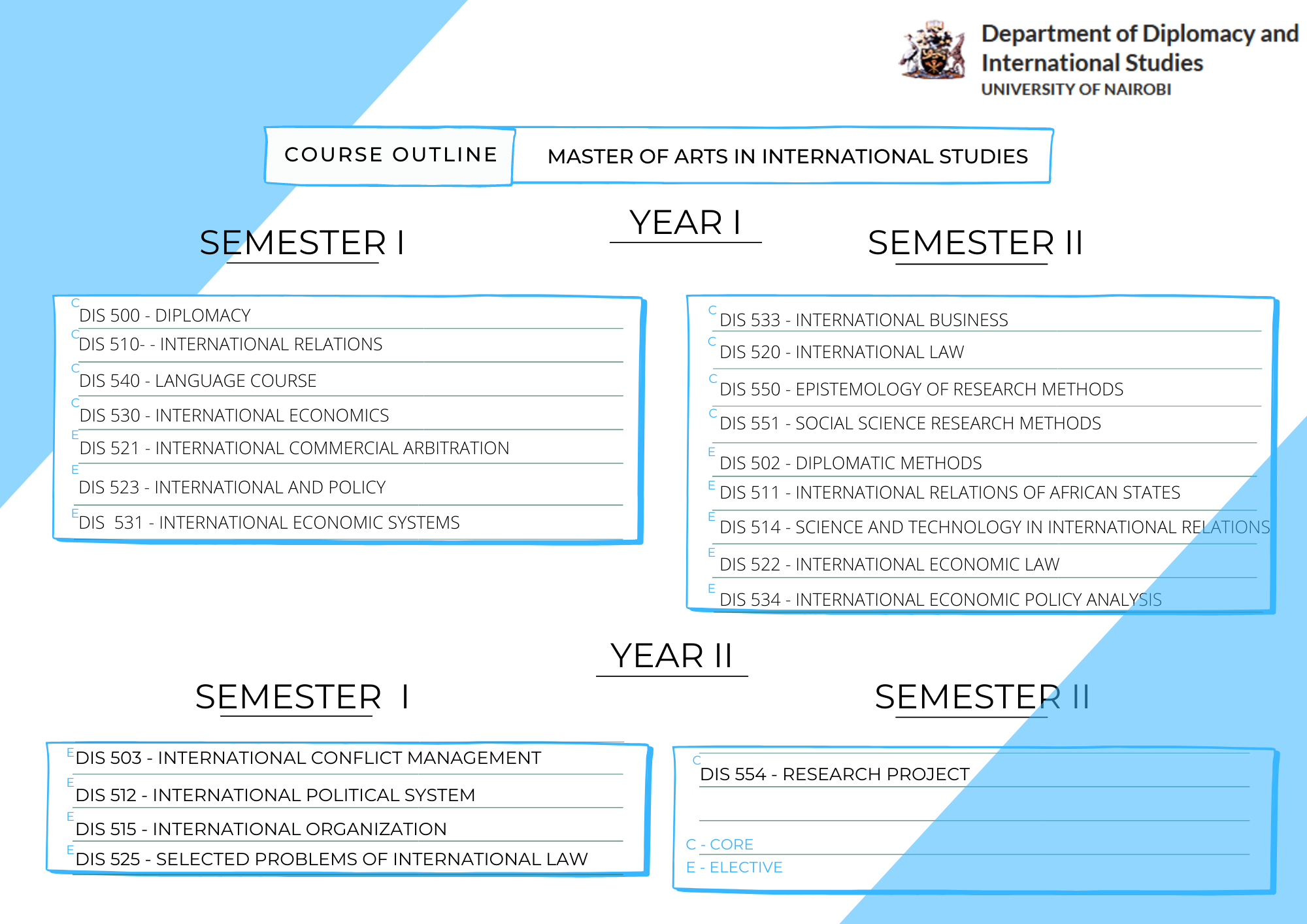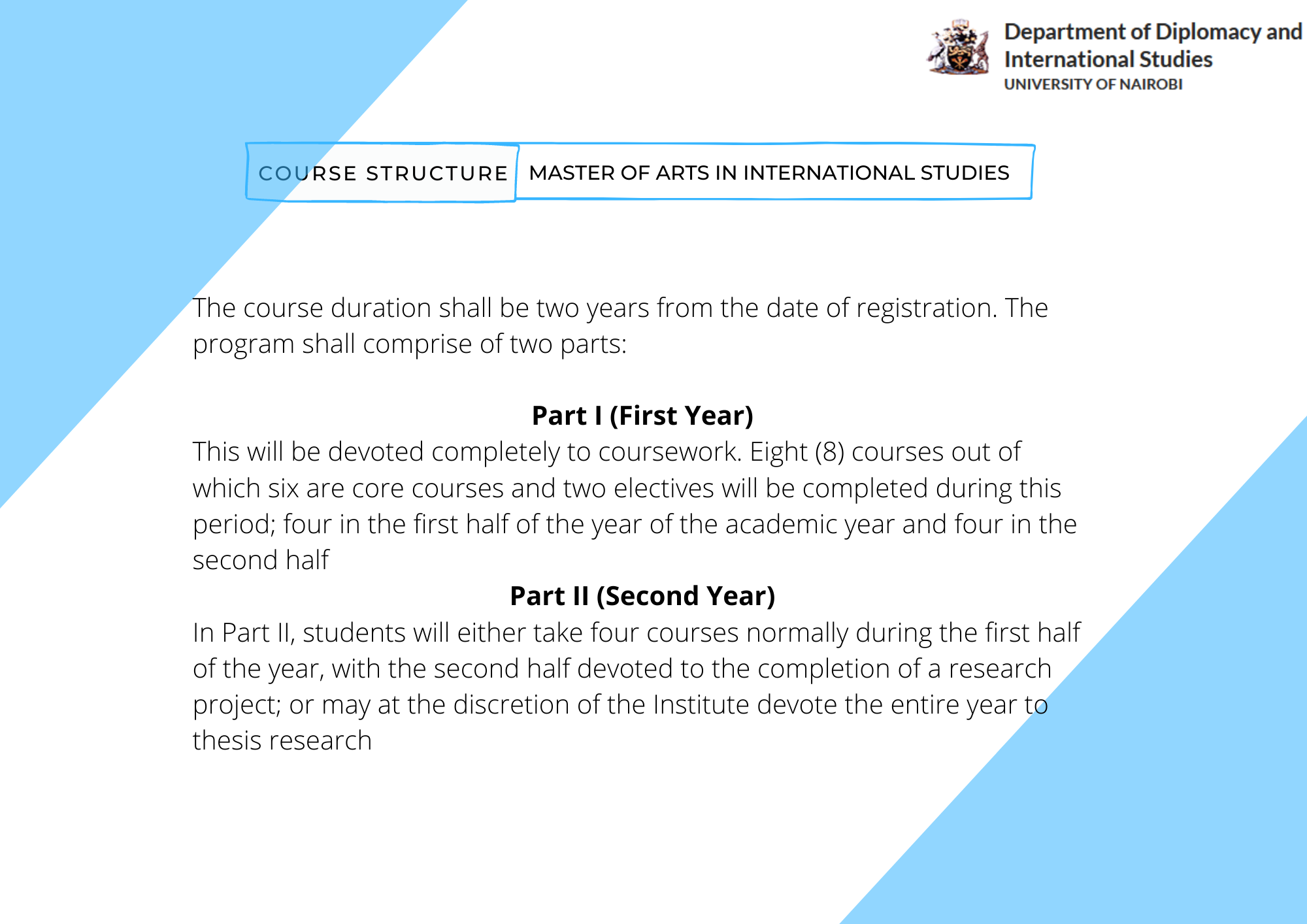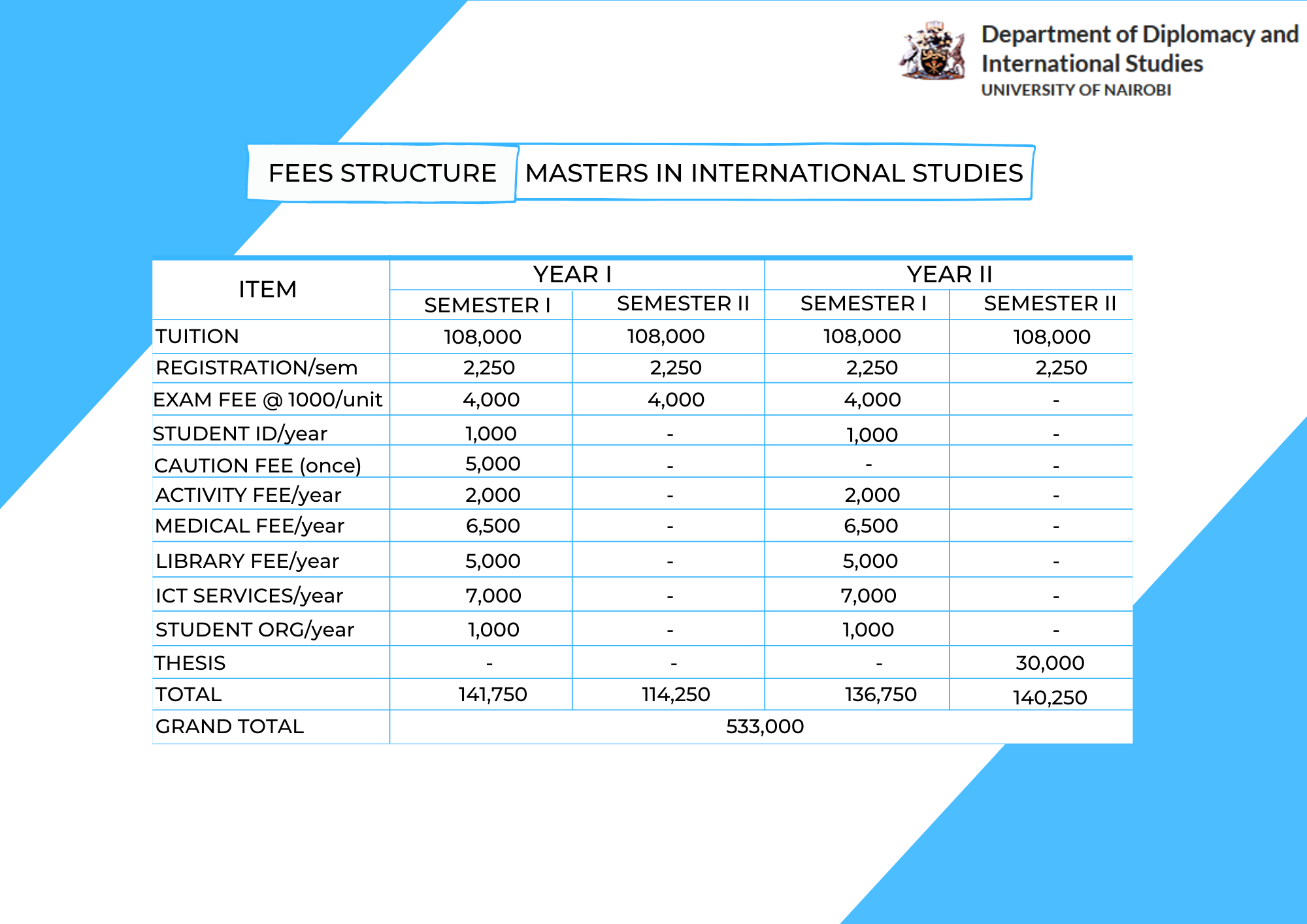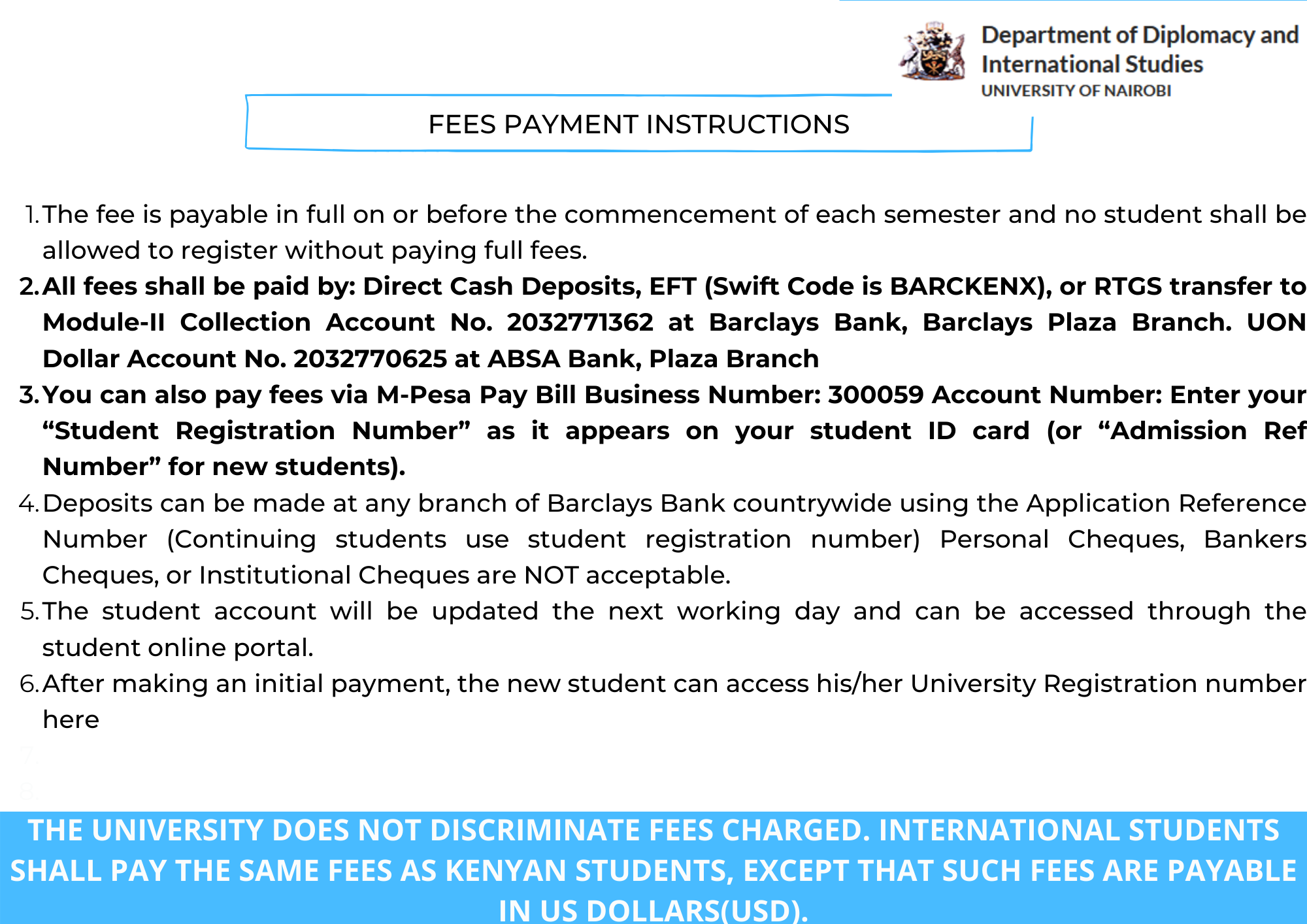Overview
Course Objective
The M.A. course in International Studies is designed as an academic course with emphasis on subject areas of practical use and importance in the conduct of international affairs. It is tailor-made to suit students, diplomats, professionals, business people, and other individuals who are interested in furthering their academic and/or career objectives in the conduct of international affairs.
Philosophy
The philosophy of this programme is hinged on the belief that in order to secure the world, attain peace, development and human rights, there is need to understand, explain and analyse the dynamics and diplomatic skills necessary for global human interactions as well as the actors and the environment in which these interactions occur. This programme is thus premised on the need to search and obtain new and accurate knowledge that can help society find answers to past and present international issues, events and processes in the fields of governance, politics, security, economy, society, culture and environment.
Rationale
The rationale for this programme is to ensure a comprehensive scope and in-depth analysis regarding international issues related to diplomatic engagement. The programme is also designed to produce highly knowledgeable diplomacy scholars; technocrats and policymakers.
2.0 mode of delivery
This programme shall use a blended learning approach of delivery of the programme involving both face to face mode and Open, Distance and E-Learning (ODel) Mode.
2.1. Face to Face- The methods of instruction shall be interactive and shall consist of lectures, class presentations, seminars, tutorials, case studies, fieldwork, practical sessions, student-teacher consultations, supervised independent study, group projects, guest speakers, or any combination of these.
2.2. Distance and E-Learning (ODeL) The Open, Distance and e-Learning Programme will include;
a. Multi-media approaches in distance education.
b. E-learning materials which will be provided on the online LMS for synchronous learning and will also be made available in external storage devices as back-up for asynchronous learning.
c. E-learning platform after conversion into e-format to provide collaborative learning through student-student, student-instructor and evaluation interaction.
d. A robust Learner Management System (LMS) and other e-learning Applications (Apps) downloadable on various electronic devices.
e. Limited face-to-face tuition during residential sessions.
f. Learner support services including academic and technical support shall be provided using multi-media approaches and during the limited face-to-face sessions.
Structure


Admission Requirements
The Common regulations for the Masters of Arts degree in all the faculties of the University of Nairobi shall apply. The following shall be eligible for admission:
- Holders of a first degree with at least an Upper Second Class Honors of the University of Nairobi, or
- Holders of an equivalent qualification from another institution recognized by the University Senate as being of a comparable academic status
Credit Transfer and Exemptions
- The common regulations for credit transfer and exemptions of the University of Nairobi shall apply.
- A student shall be allowed to seek credit transfer or exemptions for up to one-third of the total taught courses units provided that they are equivalent to those offered by the University of Nairobi and were taken at an equivalent level of study from an institution recognized by the University of Nairobi Senate.
- A student seeking credit transfer or exemptions shall send a formal application to the Academic Registrar through the Principal, College of Humanities and Social Sciences, and the Chair of the Department, justifying the request, and attaching relevant supporting documents.
- Grades for transferred course units shall be entered in the student's transcript while the exempted course units shall be entered as 'exempt'.
- Credit transfers in the case of students who are in the exchange programs shall be applicable only to specific Memoranda of Understanding or Agreements signed in advance between the University of Nairobi and the collaborating universities/institutions for joint programs.
Duration
The program runs for two (2) years lasting for a minimum period of four (4) semesters and a maximum of eight (8) semesters.
Classes run during the evening hours only on a full-time basis.
Intake is done in September only.
APPLICATION INFORMATION
To apply for the course you are interested in visit this link below for more information.
https://application.uonbi.ac.ke/
or
Contact of support person
Dr. Maluki Email. director-idis@uonbi.ac.ke
Careers
CAREER OPPORTUNITIES
Studying International Studies at the Department of Diplomacy and International Studies will prepare students for careers in various fields that include:
- Foreign service
- Diplomatic missions
- International Organizations e.g. United Nations, African Union, East African Community, World Bank etc.
- International Non-Governmental Organizations e.g. Human rights Watch, Amnesty International
- Government Security agencies
- International Humanitarian agencies e.g. International committee of the Red Cross.
- Educational Institutions: University teach and research
- Private sector: International Business.
INTERNSHIP OPPORTUNITIES:
Apart from using the university career office, our experienced academics staff advice will guide our students on how to expose themselves by developing applicable skills. Once the student identifies an internship opportunity, the Chair DDIS will provide a recommendation letter.
Fees and Funding


